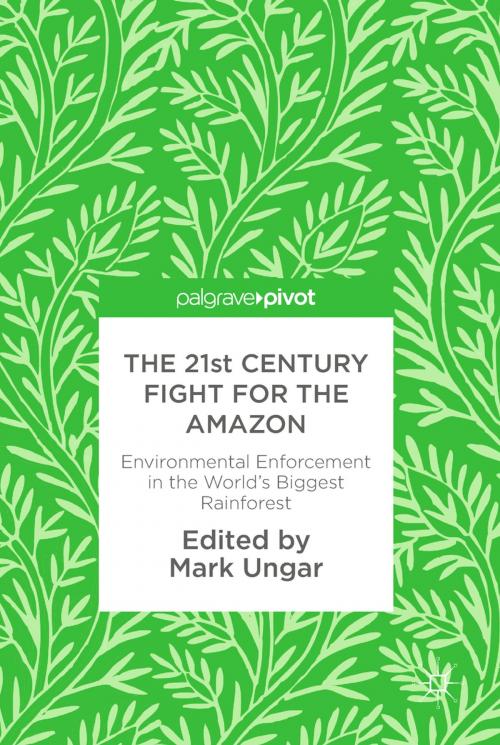The 21st Century Fight for the Amazon
Environmental Enforcement in the World’s Biggest Rainforest
Nonfiction, Reference & Language, Law, Environmental, Social & Cultural Studies, Political Science, International| Author: | ISBN: | 9783319565521 | |
| Publisher: | Springer International Publishing | Publication: | October 13, 2017 |
| Imprint: | Palgrave Macmillan | Language: | English |
| Author: | |
| ISBN: | 9783319565521 |
| Publisher: | Springer International Publishing |
| Publication: | October 13, 2017 |
| Imprint: | Palgrave Macmillan |
| Language: | English |
This book is the most updated and comprehensive look at efforts to protect the Amazon, home to half of the world’s remaining tropical forests. In the past five years, the Basin’s countries have become the cutting edge of environmental enforcement through formation of constitutional protections, military operations, stringent laws, police forces, judicial procedures and societal efforts that together break through barriers that have long restrained decisive action. Even such advances, though, struggle to curb devastation by oil extraction, mining, logging, dams, pollution, and other forms of ecocide. In every country, environmental protection is crippled by politics, bureaucracy, unclear laws, untrained officials, small budgets, regional rivalries, inter-ministerial competition, collusion with criminals, and the global demand for oils and minerals. Countries are better at creating environmental agencies, that is, than making sure that they work. This book explains why, with country studies written by those on the front lines—from national enforcement directors to biologists and activists.
This book is the most updated and comprehensive look at efforts to protect the Amazon, home to half of the world’s remaining tropical forests. In the past five years, the Basin’s countries have become the cutting edge of environmental enforcement through formation of constitutional protections, military operations, stringent laws, police forces, judicial procedures and societal efforts that together break through barriers that have long restrained decisive action. Even such advances, though, struggle to curb devastation by oil extraction, mining, logging, dams, pollution, and other forms of ecocide. In every country, environmental protection is crippled by politics, bureaucracy, unclear laws, untrained officials, small budgets, regional rivalries, inter-ministerial competition, collusion with criminals, and the global demand for oils and minerals. Countries are better at creating environmental agencies, that is, than making sure that they work. This book explains why, with country studies written by those on the front lines—from national enforcement directors to biologists and activists.















